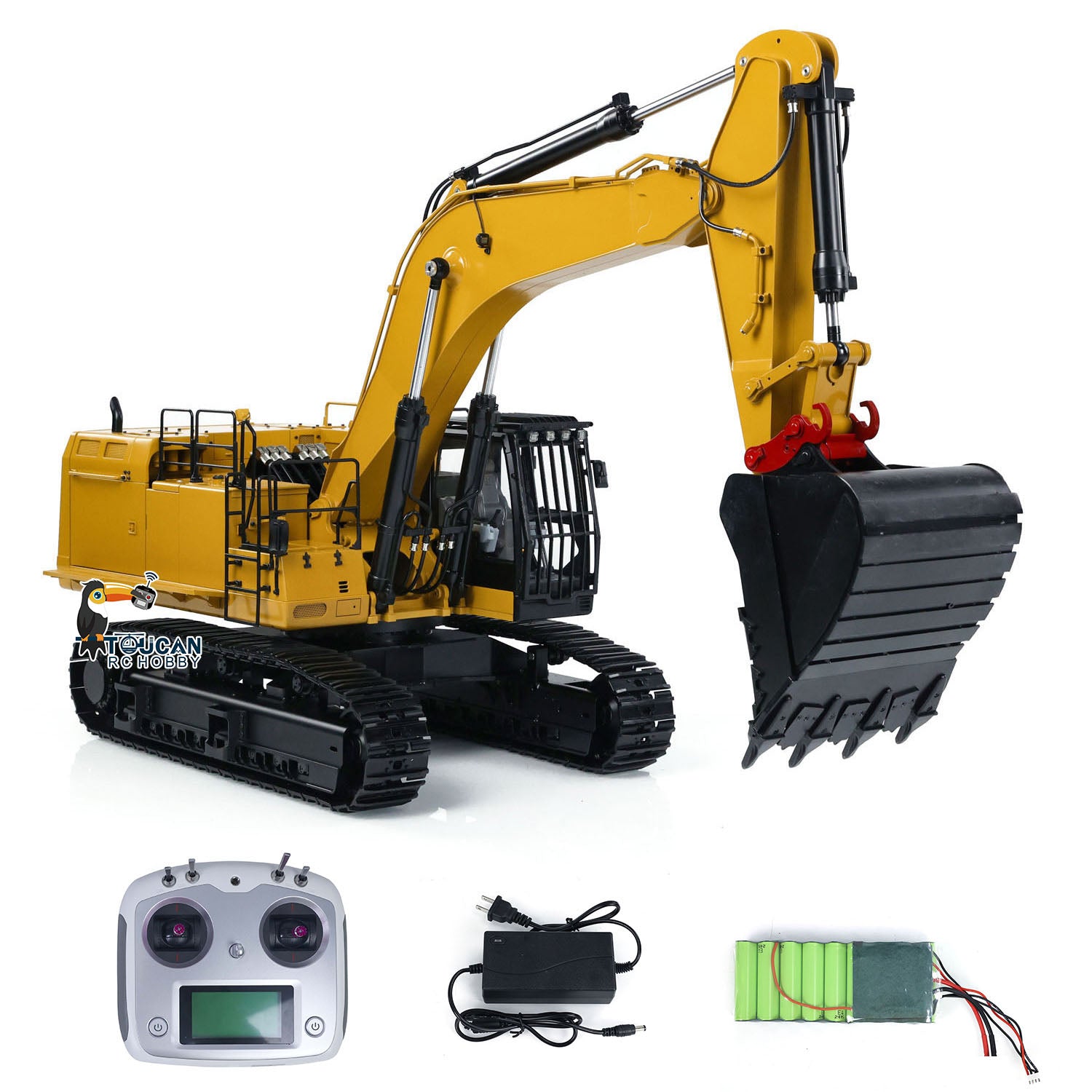Recognizing Just How Excavator Functions and Its Influence On Performance
Excavators play an essential duty in building and construction and mining procedures, relying upon a complex interaction of hydraulic and mechanical systems. Their capability to perform a selection of jobs depends upon both their design and the modern technology integrated within. Understanding these parts can substantially affect operational performance and efficiency. As innovations continue to improve the market, one must take into consideration exactly how these adjustments will affect future practices and performance.
The Basics of Excavator Mechanics

The Duty of Hydraulic Solutions in Excavators
At the heart of excavator operation exists the hydraulic system, which plays a crucial duty in powering the machine's functions and movements. This system utilizes pressurized hydraulic liquid to move power, enabling different activities such as training, swinging, and digging. By using the principles of hydraulics, excavators can perform tasks with amazing precision and pressure, improving total functional efficiency.The hydraulic system is composed of vital elements, consisting of pumps, shutoffs, and cyndrical tubes, which collaborate to manage the flow and instructions of the liquid. When the operator involves the controls, the hydraulic fluid is routed to certain cyndrical tubes, equating the operator's commands right into physical motion. This mechanism permits receptive and smooth actions, which are crucial in building and excavation environments. double e volvo rc excavator. The performance of the hydraulic system directly impacts the productivity and convenience of the excavator, making it a vital component in contemporary excavation processes
Secret Components of an Excavator
Recognizing the essential parts of an excavator is vital for realizing how this effective device runs. An excavator is composed of numerous significant aspects, including the undercarriage, residence, container, boom, and arm. The undercarriage provides stability and wheelchair, frequently including wheels or tracks to navigate numerous surfaces. Your house consists of the engine and hydraulic systems, allowing the operator to manage activity and power the device. The boom prolongs from your house, enabling vertical reach, while the arm links to the pail, assisting in excavating and lifting operations.Additionally, the cab houses the operator, geared up with controls for specific maneuvering. Each of these elements plays an important function in the excavator's total functionality, adding to its efficiency and efficiency on building and construction sites. Comprehending these components helps in optimizing and maintaining excavator efficiency, guaranteeing tasks are completed safely and properly.
Accessory Convenience and Its Advantages
Accessory convenience is a vital aspect of excavators, enabling operators to switch over between various devices customized for specific tasks. This versatility not only boosts work efficiency however likewise adds to cost-effectiveness by reducing the requirement for several devices. Understanding the different sorts of attachments available can greatly influence the general performance and performance of an excavator on job sites.
Sorts of Add-ons
While excavators are mostly identified for their excavating capacities, their real convenience hinges on the wide selection of add-ons available. These add-ons enhance the excavator's functionality, enabling it to do various jobs past excavation. Typical add-ons consist of containers (for excavating and scooping), hydraulic thumbs (for understanding materials), and augers (for piercing holes) Grapples are made use of for relocating and dealing with debris, while rippers can separate tough surfaces. Various other specialized add-ons, such as trenchers and rakes, make it possible for excavators to adjust to specific task needs. This diversity not just enhances the equipment's utility across various industries, consisting of landscape design, demolition, and construction, yet likewise allows drivers to tailor their tools to meet details job needs efficiently.
Raised Task Efficiency
Optimizing task efficiency is a main benefit of using numerous excavator attachments. Various attachments enable an excavator to perform several jobs without needing to change tools, saving useful time see this website and labor. For instance, using a hydraulic hammer can break concrete while a container accessory can excavate dirt, making it possible for a seamless process. This adaptability lowers downtime connected with devices adjustments and boosts productivity on-site. Furthermore, specialized add-ons boost accuracy in jobs such as grading or landscape design, bring about greater quality outcomes. The capacity to adjust to numerous work requirements not just enhances procedures however additionally decreases the demand for added equipment, ensuring that projects are completed quickly and successfully. In general, add-on convenience substantially adds to enhanced job efficiency in excavation work.
Cost-Effectiveness and Convenience
Cost-effectiveness is a substantial benefit of using versatile excavator add-ons. These accessories allow a solitary excavator to do numerous tasks, reducing the requirement for extra machinery and labor - double e volvo rc excavator. By switching between pails, hammers, and grapples, drivers can take on numerous jobs, from excavating to demolition, thereby maximizing equipment application. This versatility not only reduces operational expenses but additionally lessens downtime related to transforming devices. In addition, the capability to tailor excavators with specialized add-ons improves productivity, as they can efficiently manage diverse jobs according to task demands. To end, the mix of cost-effectiveness and adaptability in excavator attachments adds to boosted operational effectiveness and resource appropriation in construction and excavation tasks

Advanced Innovation in Modern Excavators
Modern excavators are increasingly equipped with innovative innovation that transforms excavation procedures. Automation improves operations, while boosted fuel performance reduces functional costs. In addition, smart control systems enhance accuracy and safety, noting a significant evolution in excavation tools.
Automation in Excavation Processes
As excavation innovation evolves, automation has actually become an essential element in boosting effectiveness and accuracy on job websites. Modern excavators are geared up with innovative automated systems that assist in tasks such as grading, excavating, and trenching with minimal driver intervention. These systems make use of sensors, GPS, and machine discovering formulas to ensure precise placing and depth control, significantly lowering the margin for error. Furthermore, automation permits drivers to focus on critical decision-making instead of hands-on controls, bring about improved efficiency generally. Such technologies not only simplify workflows however additionally improve safety and security by reducing human error in intricate operations. The assimilation of automation in excavation processes represents a considerable innovation in building and construction technology, driving the industry towards greater efficiency and effectiveness.
Boosted Fuel Performance
Improvements in modern technology have actually also caused substantial enhancements in gas effectiveness for modern excavators. Modern makers are equipped with innovative engines that maximize power result while minimizing gas usage. These engines use ingenious burning modern technologies, such as turbocharging and direct gas shot, to improve performance and performance. In addition, light-weight materials in construction reduce total weight, enabling for less power expense throughout procedure. The intro of variable speed controls allows drivers to change engine performance according to particular jobs, even more decreasing gas use. As a result, these enhancements not only reduced operational prices yet additionally add to environmental sustainability by lowering discharges. In general, boosted fuel efficiency in excavators is an essential growth site web that bolsters performance and economic feasibility in the building and construction market.
Smart Control Systems
While operators browse progressively complex job websites, smart control systems in excavators have actually become necessary tools for boosting effectiveness and accuracy. These innovative innovations utilize sensing units and formulas to keep track of various parameters such as load weight, terrain conditions, and operational efficiency. By immediately adjusting hydraulic features, clever systems enhance maker performance, bring about improved performance and decreased wear on parts. Furthermore, drivers gain from instinctive user interfaces that provide real-time responses and diagnostics, permitting informed decision-making. This assimilation of technology not only improves operations yet also reduces human mistake, adding to more secure work environments. As the building market continues to progress, smart control systems will play an important duty in forming the future of excavator performance and effectiveness.
Enhancing Operational Performance With Excavators
Excavators play a crucial function in boosting operational effectiveness throughout numerous construction and excavation projects. Their versatility permits several tasks, consisting of digging, lifting, and material handling, which streamlines operations and lowers the demand for additional equipment. With powerful hydraulic systems, excavators can perform sturdy jobs with precision, significantly lowering the moment required to total projects. The assimilation of advanced modern technology, such as GPS and automated controls, even more optimizes their procedure, making it possible for operators to attain higher precision and decrease product waste. Additionally, contemporary excavators are designed to eat less gas and lessen emissions, adding to both expense financial savings and environmental sustainability. By utilizing excavators properly, building teams can improve productivity, fulfill project target dates, and improve general website management. This multifunctionality and performance make excavators important devices in the contemporary building and construction landscape.
The Future of Excavators in Building and Mining Industries
As the building and construction and mining sectors evolve, the future of excavators is positioned for substantial transformation driven by technical innovation and altering functional demands. Developments in automation and synthetic knowledge are improving excavator abilities, enabling enhanced precision and effectiveness in procedures. Self-governing excavators are arising, lowering the need for browse around this site human intervention and minimizing the danger of accidents.Moreover, the assimilation of telematics and IoT technology allows real-time tracking of maker efficiency and predictive maintenance, maximizing uptime. Green designs, including electric and hybrid designs, are obtaining grip, aligning with sustainability objectives within the industry.Additionally, using sophisticated products and lighter layouts boosts gas performance while maintaining performance requirements. As these patterns development, excavators will certainly play a crucial function in fulfilling the raising needs for performance and safety in building and mining, inevitably transforming functional landscapes.
Often Asked Inquiries
Exactly How Do Climate Condition Impact Excavator Efficiency?

Weather considerably influence excavator efficiency, as rain and mud can impede traction and stability, while severe temperature levels might affect hydraulic systems. Operators needs to adapt to these variables to guarantee excellent functionality and safety throughout operations.
What Precaution Should Operators Comply With While Using Excavators?
Safety and security procedures for excavator operators consist of wearing appropriate personal safety tools, carrying out pre-operation evaluations, guaranteeing correct communication with ground employees, maintaining a safe range from above hazards, and sticking to well-known functional methods to stop crashes.
Exactly How Frequently Should Excavators Be Kept for Optimum Efficiency?
Excavators need to be preserved routinely to ensure peak efficiency, generally every 250 operating hours or as defined by the supplier. Routine checks boost reliability, protect against unexpected failures, and extend the lifespan of the devices.
What Is the Ordinary Life-span of an Excavator?
The average life expectancy of an excavator commonly ranges from 10,000 to 15,000 hours of procedure. Factors influencing durability include maintenance practices, operating conditions, and the quality of the device itself, affecting general efficiency and effectiveness.

Can Excavators Run on Uneven Surface Effectively?
Excavators can operate effectively on uneven terrain because of their verbalized layouts and flexible tracks. These features permit them to keep security and traction, enabling reliable operation in challenging settings typically experienced in building and construction and landscape design jobs. Each of these components plays a vital function in the excavator's overall capability, contributing to its efficiency and performance on building websites. Maximizing work efficiency is a key benefit of utilizing different excavator attachments. While drivers navigate progressively complex task websites, wise control systems in excavators have emerged as crucial devices for enhancing effectiveness and precision. Excavators play an essential role in improving functional effectiveness throughout various building and construction and excavation tasks. Developments in automation and man-made intelligence are reshaping excavator capacities, enabling for enhanced accuracy and efficiency in procedures.
Comments on “How to Improve Productivity with a rc excavator on Your Next Project”